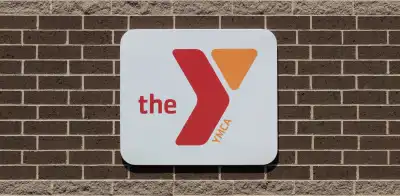Summary
A network structure is allowing teams at TravelPerk to make a true impact by owning and acting on the priorities using the OKR goal-setting system.
While travel came to a standstill in 2020, TravelPerk put on a bullish front. CEO and co-founder Avi Meir remained confident that business travel would make a comeback. He predicted that high-quality customer service would become even more critical, along with flexibility, safety, and sustainability. So during the pandemic, TravelPerk did the opposite of cutting costs — it acquired UK-based Click Travel, US-based NexTravel, travel risk management startup Albatross, and corporate responsibility consultancy Susterra.
They retained a no-layoff policy and pursued a Series D round of $275 million, at a valuation of $1.3 billion, according to TechCrunch. Meir told What Matters that “Since 2019, TravelPerk has grown four times in terms of annualized revenue and doubled its customer acquisition rate.”
Meir believes that one critical reason for TravelPerk’s success has been their mindset on achieving the most impact possible. And OKRs have been a crucial tool to do just that.

An OKR-driven company with a unique structure
OKRs have always been at the center of TravelPerk. Meir implemented the framework as an effective way to coordinate the company around a specific focus. “The framework is easy to understand,” he says, “and gives all teams independence and the flexibility to contribute to the company’s focus without being told what to do.”
Organizing around flexibility is also a core tenet of TravelPerk, where teams form around work (i.e., a specific project) rather than traditional functions. Each work team is called a squad, and squads are grouped into tribes. The makeup of each squad or tribe depends on the problems or projects they share responsibility for, and exist primarily to support “keeping cross-organizational alignment while we scale up,” blogs Engineering VP Ivan Peralta. Above the tribes are traditional departments like marketing, engineering, and finance.
Each department and squad creates OKRs that align with the company’s top-line annual OKRs. The company sets its overall vision for the beginning of the year, and then the department sets its OKRs based on the company’s annual goals. From there, it’s up to the team to figure out how they can best achieve the goals that the leadership team has set. Sometimes, that translates to the creation of a new squad that sets its own OKRs.
That’s exactly what happened in the third quarter of 2021. The mobile team created a squad to support, scale, and improve mobile engineering processes so the product squad can build high quality applications. They set two Objectives that would lay the foundation for operating excellence, which revolved around ownership — something that Meir says is instilled in the company’s DNA. Those two Objectives were as follows:
- Take ownership of cross-squad components.
- Empower product squads: “You build it, you own it.”
For the mobile platform squad, this meant being responsible for more than the app - components beyond the product itself, such as tools and processes. Maintaining and improving tools, for example, can take up a developer’s time that could be spent on the product itself. The same goes with fine-tuning processes. And according to senior android engineer Luis G. Valle, mobile engineering processes have improved after the first quarter. Ultimately, the mobile platform squad created a product to improve their development infrastructure and system itself. Doing so enabled the product team to better focus on building high-quality applications.
Because squads and tribes are fluid, TravelPerk’s OKRs don’t follow traditional, top-down departmental strategic planning and execution. That’s deliberate, says Meir, who thinks, “The model of things being reported up and down orders is cliched and old.” In Meir’s view, a fast-growing company needs a “network” rather than a “pyramid” structure. “The decision-making process is delegated towards people doing the actual work, which is a quicker and more efficient way of working.”
That mentality is what Meir believes allows TravelPerk to achieve outstanding results. And he believes that being an OKR-centric company is vital because, “Adopting a framework like the OKR framework already means you’re focused on impact rather than efforts. Impact over effort has always been a critical mindset in TravelPerk.”





